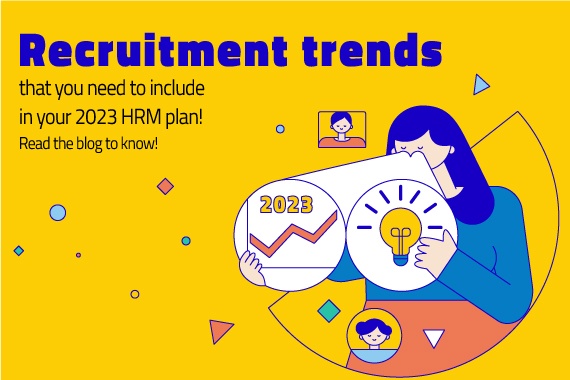
What Makes Them The Best Of All Top HR Recruitment Companies In India
What Makes Them The Best Of All Top HR Recruitment Companies In India
The most important asset of every business is its workforce. They’re also one of the most difficult assets to effectively manage. Despite the fact that every employee has a distinct set of skill sets and needs, the company’s success depends on everyone working together as a team. Human resource (HR) management is responsible for assessing the work required to fulfill a company’s goals, putting the right people in the right positions to do the work, and empowering them to perform at the highest potential level. In this blog, we’ll examine the key functions of the best HR consulting firms in India and show how they contribute to the overall success of a company.
5 Functions That Top HR Consulting Firms Have in Common
Recruiting and Hiring
One of the most crucial HR functions is recruiting and hiring talent, which entails much more than attending job fairs and reviewing resumes. This vital HR function includes workforce planning, developing job descriptions, advertising positions, screening and interviewing applicants, and assisting managers in making the best hiring decisions. HR managers must do so while still meeting the company’s larger objectives of hiring a multicultural, multigenerational workforce. HR managers typically assist with the hiring and onboarding process, which includes making job offers, negotiating salaries, and enrolling new employees in benefit packages.
Compensation Management
Managing compensation involves setting price ranges for roles, placing individuals within those ranges based on their credentials, and changing pay to reflect significant achievements. Performance incentives like bonuses and commissions are also part of the package. In other cases, the HR manager may be in charge of establishing the company’s overall strategy and working with supervisors and managers to ensure that all employees are paid fairly.
Professional Development and Training
It’s human nature to want to learn new things and progress, and companies who take advantage of this drive can gain considerable benefits. Orientation training to introduce employees to corporate policies, procedures, and resources; job-specific skill and tool training; safety training; company strategy meetings; and compliance training are examples of on-the-job training. Some companies offer education grants to help employees pay for learning opportunities outside of the workplace. Conventions and seminars, as well as academic courses, are examples of these.
Benefits Management
Benefits account for almost 30% of total employee remuneration. Fringe benefits are benefits that are provided as part of an employee’s compensation package. Fringe benefits are taxable since they have a monetary value. Education perks, child care support, and use of a corporate car are just a few examples. Employee benefits management is a crucial aspect of HR management.
HR analytics and data
HR has come a long way in the last half-decade in terms of becoming more data-driven. HR metrics or HR KPIs, are a simple way to keep track of important data. These are precise measurements that show how well a company is performing on a particular metric. HR can make better data-driven decisions if they actively measure and analyze this data. These decisions are usually more objective, making it easier to gain management support for them.
Conclusion
HR is a multifaceted position that helps businesses get the most out of their employees. To operate across these fundamental HR functions, you’ll require a diverse skill set as an HR professional. The pursuit of a core qualification in HR cannot be the end of education. The workplace and society are always changing and evolving. HR professionals and firms, too, must continue to grow in order to successfully lead their teams through change.





